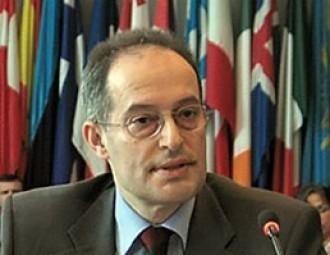Miklos Haraszti is consulting with the representatives of the Belarusan civil society

Miklos Haraszti never received the invitation to visit Belarus and is going collect information about the situation with the human rights in Belarus in the neighboring Lithuania.
Miklos Haraszti, special reporter of the United Nations Human Rights Council to Belarus was on a visit to Vilnius from July 11 till July 14 to hold consultations with the representatives of the Belarusan civil society. Before his visit he announced his intentions to meet the representatives of the Belarusan civil society and discuss the situation with human rights in the country.
- After my appointment on the position of the special reporter I tried to cooperate with the Belarusan government and was involved in organizing my official visit to Belarus. Since there is no cooperation from the official side, I keep on meeting separate people to receive information about the situation with the human rights in the country in order to fulfill my mandate, - Miklos Haraszti said.
During the four-day trip special reporter met a number of civil society representatives as well as representatives of Belarusan NGOs in order to collect information about the human rights situation in Belarus. The results of these meetings will be reflected in his rapport to the UN General Assembly scheduled for October 2013.
Let us recall that this year Miklos Haraszti published his first report that was presented to the Human Rights Council on June 4. Haraszti said that the situation with political prisoners raises deep concern. He also recalled that the Belarusian authorities did not let him into the country and refused to cooperate with him. He highlighted the fact that he was concerned with the lack of rule of law in Belarus, particularly with regard to procedural guarantees; whereas his multiple meetings with human rights defenders and victims of human rights violations reflected a lack of trust in the judiciary, as well as a lack in the belief that rights would be protected by the judiciary over the interests of the authorities.
More specifically, the Special Rapporteur addressed the following issues in his report: right to life and the death penalty; enforced disappearances; prison conditions, torture and other cruel, inhuman or degrading treatment; treatment of political opponents, human rights defenders and activists; independence of judges and lawyers; fair trial; arbitrary arrest and detention; freedom of expression and opinion, peaceful assembly, association and human rights defenders; discrimination; treatment of lesbian, gay, bisexual and transgender persons; labour rights and trade unions and elections.
-
03.01
-
07.10
-
22.09
-
17.08
-
12.08
-
30.09



























